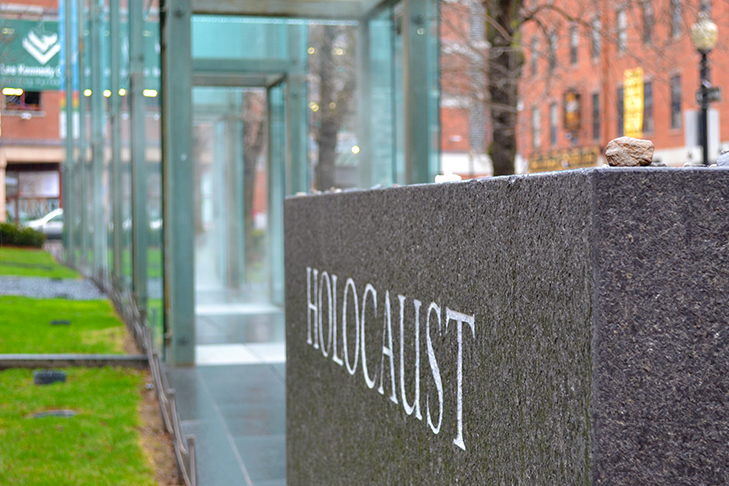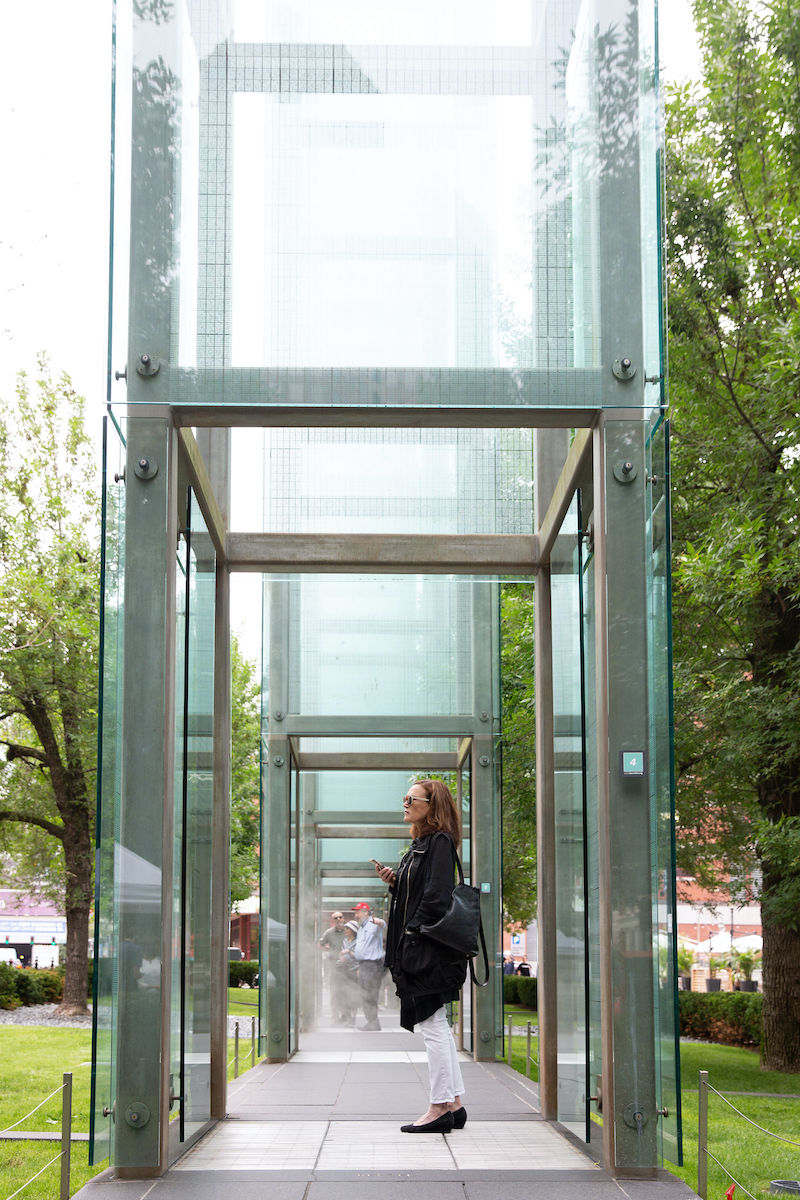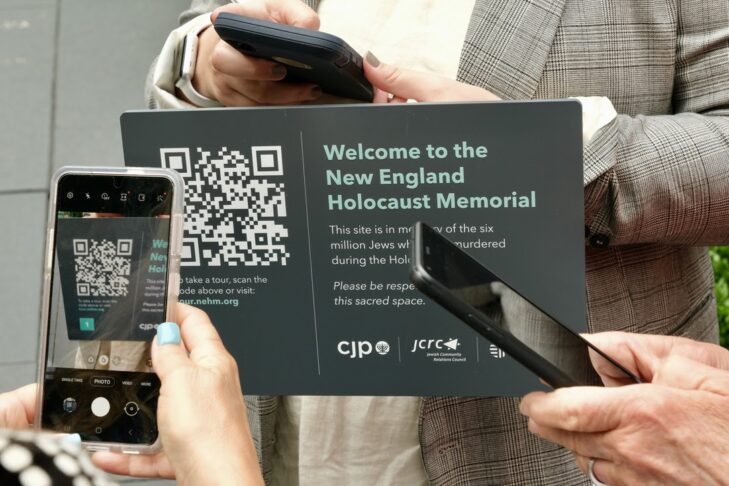There’s a moment toward the end of the mobile tour of the New England Holocaust Memorial that is so visceral it breaks your heart. The newly revamped mobile tour asks visitors to walk over the metal grates toward the end of their visit to note a group of small lights representing the charred embers of gas chambers from all the concentration camps. Like stars that still emit light millions of years after they have died, these lights continue to glow and represent the millions of Jewish lives destroyed in the Holocaust.
At that same stop on the tour, steam emanates from the grates—steam that signifies the smokestacks at the crematoria. The glass towers of the memorial stand in for the smokestacks of the gas chambers. Yet they are lit from within, shining at night to transform into symbols of hope and strength.
Stephan Ross founded the New England Holocaust Memorial (NEHM) in 1995. A survivor of 10 labor and death camps, Ross was a magnetic speaker who tirelessly went to schools and other venues to ensure that the history of the Holocaust would never be forgotten, or worse yet, denied. Ross died in 2020, and his death made it clear time was running out to present the Holocaust as living history.

That need was painfully clear in 2017 when NEHM was vandalized twice, shattering one of the memorial’s glass panels. As the NEHM mobile tour notes, the second incident was perpetrated by a Malden High School student and happened just three days after a white supremacist neo-Nazi rally in Charlottesville, Virginia. Erica Daniels-Strater, director of development for the Jewish Community Relations Council of Greater Boston (JCRC), said the occurrences have been part of a string of antisemitic incidents over the last few years in Massachusetts, including in Duxbury, Brighton, Framingham and at Tufts University. The work of keeping Holocaust history as a bulwark against antisemitism is crucial—these modern updates come at a time when reports of antisemitic speech and hate crimes are increasing at an alarming rate, and Holocaust awareness and education is reported to be at an all-time low across the country.
Related
Additionally, the Kraft family funded an initiative called “The Final Whistle on Hate” in 2019 through a partnership with the New England Revolution soccer team and England’s Chelsea Football Club. Robert Kraft owns the New England Revolution, and Roman Abramovich owns the Chelsea Football Club. Abramovich has been proactive in addressing antisemitism during his club’s games by funding the educational program “Say No to Antisemitism.” The two teams played each other in an exhibition match to raise funds for “Final Whistle on Hate.”

NEHM’s mobile tour design closely mirrors the audio guides used in museum tours. Naomi Greenfield, project manager for the mobile tour, recently compared NEHM to an outdoor museum in which a visitor clicks on a number corresponding to a stop on the virtual tour. The virtual component, she told JewishBoston, was “an evergreen solution for visiting NEHM virtually in the pandemic. We also needed a way for people to hear survivors’ stories without relying on the survivors themselves.”
One of the striking aspects of the virtual tour is the survivors’ testimonies posted on the site. The addition makes these testimonies available in perpetuity. Daniels-Strater said the goal of the redesign was “to make sure that survivors’ stories and the survivors lived on through time.” Accordingly, the website’s redesign, a joint effort of CJP and JCRC, includes educational material from Facing History & Ourselves. Greenfield noted that “the important component that Facing History understood was how to talk about the Holocaust in an educational setting. Education was the goal.”
According to Greenfield, the mobile tour was developed with three audiences in mind: passersby who are curious about the memorial during their walk on the Freedom Trail, destination visitors who come to the memorial specifically and school groups with access to content from Facing History & Ourselves before their visits or virtual tours.

The mobile tour designers were also mindful of presenting clear signage that matched the on-site signage pointing to survivor testimonies and other information. An additional point is that the mobile tour is concise—most of the narration at each stop is less than two minutes long, and that brevity is impactful.
At the end of the NEHM mobile tour, there is a piece of granite etched with the iconic words of Martin Niemoller, a German pastor who came to oppose the Third Reich after initially supporting Hitler’s policies and delivering antisemitic sermons. Because of his resistance to Nazi policies, Niemoller was sent to a concentration camp that he survived. His words, urging people to be upstanders rather than bystanders, resonate long after visitors leave the memorial.
They came first for the Communists,
and I didn’t speak up because I wasn’t a Communist.
Then they came for the Jews,
and I didn’t speak up because I wasn’t a Jew.
Then they came for the trade unionists,
and I didn’t speak up because I wasn’t a trade unionist.
Then they came for the Catholics,
and I didn’t speak up because I was a Protestant.
Then they came for me,
and by that time no one was left to speak up.
Find information about the New England Holocaust Memorial mobile tour here and the virtual tour here.





